Back in 2012, I decided to build out a personal website that branded my expertise and allowed me to blog about marketing and entrepreneurship. When I first started, it was purely for the passion. Truthfully, I didn’t take it seriously and wasn’t publishing regularly. Instead, I made a personal goal of blogging 2x a month and would write about things that inspired me based on the happenings at my full-time job.
As I continued writing, I began to repurpose my evergreen content over to LinkedIn Pulse so that I could get more eyeballs on my content. In addition to Pulse, I was also sharing my content in the following places: StumbleUpon, LinkedIn Groups, Facebook, Twitter, and LinkedIn Updates. I did this because the most I was doing from an SEO perspective was on-page and technical site – I wasn’t really focused on keyword research or search intent.
What changed?
I started hearing from actual CEOs who needed marketing help. I took on some side consulting work here and there to fuel my passion for marketing. Then the work started scaling contract-wise. CEOs weren’t interested in one-off consulting projects with me anymore — they wanted me to take on a more active role in helping them do the following:
- Generate quality leads.
- Drive traffic to their website.
- Align marketing and sales initiatives.
- Act as if I was an in-house team member to build out their marketing strategy.
As the requests from different companies grew, I realized how important and effective my blog had been with positioning my expertise, authority, and credibility in the marketing world. I showed that I had a voice and real-world experiences running successful marketing strategies that other businesses could benefit from.
Now, as you read this, you’re probably thinking, “How can I make this happen for myself?” I’m making a safe assumption here that you’re holding a full-time job but you’re interested in earning more money during nights and weekends, and you want to find a creative outlet for something you’re passionate about.
In this quick guide, you’ll learn the following:
- How to decide which blog topics you should start writing about now. When I started, I didn’t give SEO or search intent much care, but this is necessary in today’s market.
- How to plan out your content so that it is in alignment with your target audience’s needs.
- How to commit to pushing out content regularly.
- How to promote your content.
- How to generate income from blogging.
Just like anything else in business, I think it’s important to outline why you want to start your blog, for who, what you’re looking to accomplish, and by when.
This is a critical step to starting something that you will continue to nurture and take seriously so that you can eventually generate revenue doing it.
Now if you’re looking for how you can get rich quick or make money quickly, a blog may not be the best route for you because it will take time. Of course, there are ways you can expedite the process of making money with your blog through paid advertising, but know that this isn’t the end goal for you. Rather, it’s about having a place where you can educate your target audience and more importantly, you’re writing about something you really love.
Figure Out Your Personal Brand
The importance of having a personal brand is that you have an identity of who you are and why it matters to your target audience, even before you start blogging. In order to attract the right audience, you have to also make sure you are positioning yourself in such a way that it not only speaks true to your expertise, but also to what your target audience is looking for.
A personal brand will also help you stand out from the rest. This gives you an opportunity to highlight your strengths, and why you believe you’re credible enough to blog about the topics you decide to write about.
Here’s a simple exercise you can start with:
- What are you passionate about?
- Why do you think people would benefit from reading your blog?
- What kind of tone/voice do you want your blog to have?
- What is the one thing you’re really good at that you know can bring value to others?
- What kind of personality do you want to exude to your audience?
Choosing the Right Topics to Write About
There is a science behind blogging, especially when it comes to selecting topics that are actually being searched for via search engines (i.e. search volumes), understanding the competitiveness of the topic, and then implementing on-page SEO.
To start, consider the following steps:
- Do a competitive analysis. Surely, there are already people out there blogging about the same topics you want to write about. Check out their sites and look at the topics they are writing about. Pay close attention to the ones that are gaining the most attention, i.e. getting the most social shares, comments, etc. This will help you stir up ideas for your own blog, too.
- Check out online forums — larger publications like Entrepreneur or Inc, head over to Medium, LinkedIn Groups, and Facebook Groups – go anywhere your target audience would go online and see the conversations they are having. Look at the type of content and the topics they engage with. Use this to your advantage as you build out your own blogging calendar.
- Do a Google search. See what’s suggested once you begin typing in the topic you want to write. Take note of the suggested topics and put them into an ideas repository that you can revisit.
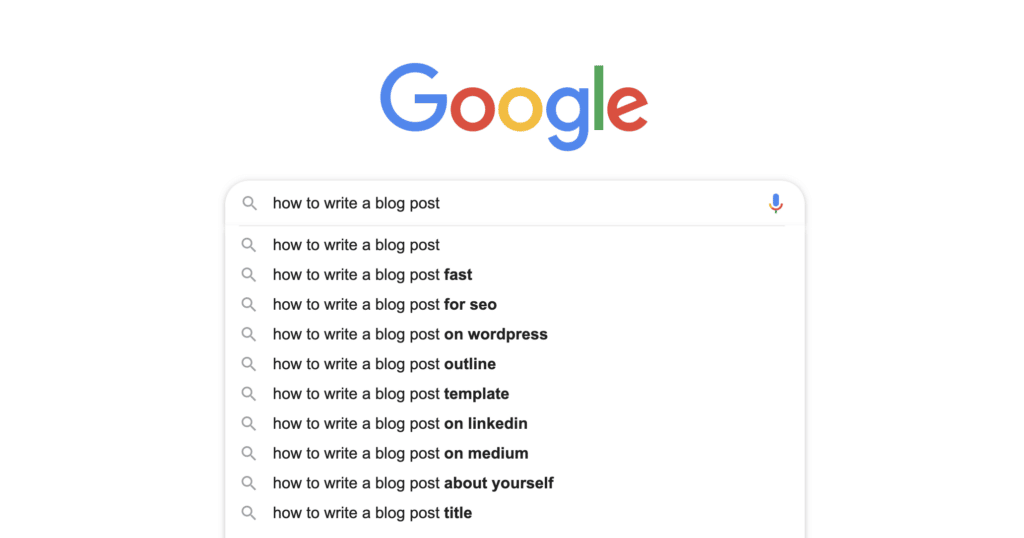
- Once you implement the Google search, look at how many results show for that particular topic, as seen below:

This will help you get a good idea of how competitive the topic is as well.
- Implement keyword research. If you haven’t already, check out my detailed guide on How to Do Keyword Research for Your Blog. Doing keyword research will help you understand the competitiveness and search volumes, as well as what currently ranks in SERPs for the keywords you want to be found for.
- Next up, create a blog topic mindmap. I especially love this because it’s a great way for you to visualize what you want to write about and how certain topics may be similar in nature.
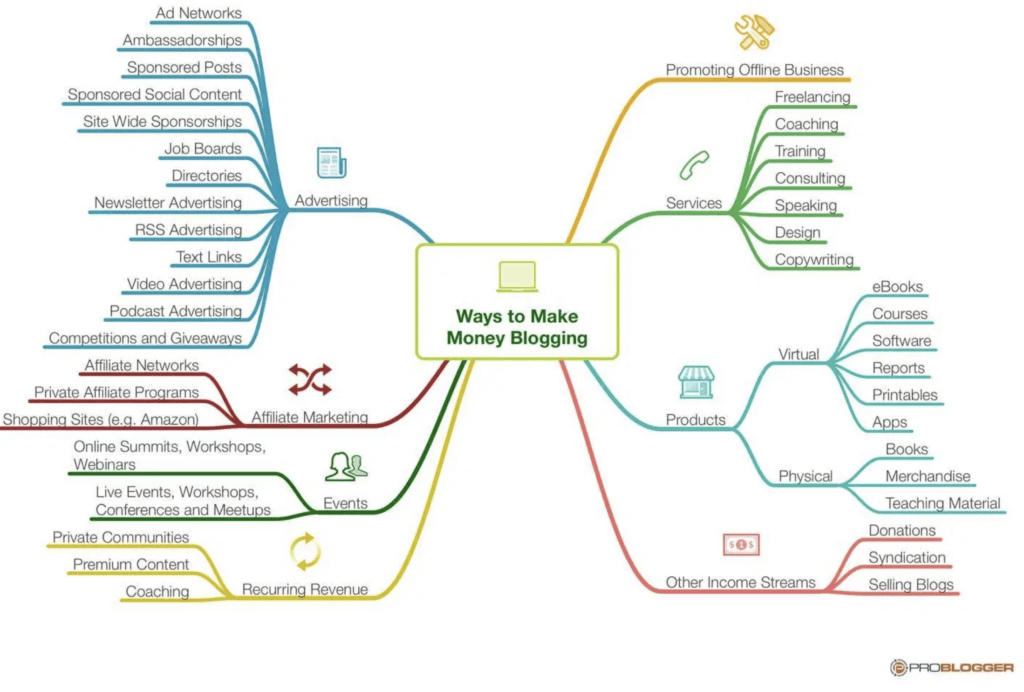
Tools to consider using:
- I love Moz for keyword research and SERPs analysis. This is a great way for me to look at related topics and couple them together to develop deeper content clusters and even group certain topics together based on where I think my audience may be in the marketing funnel/lifecycle stage.
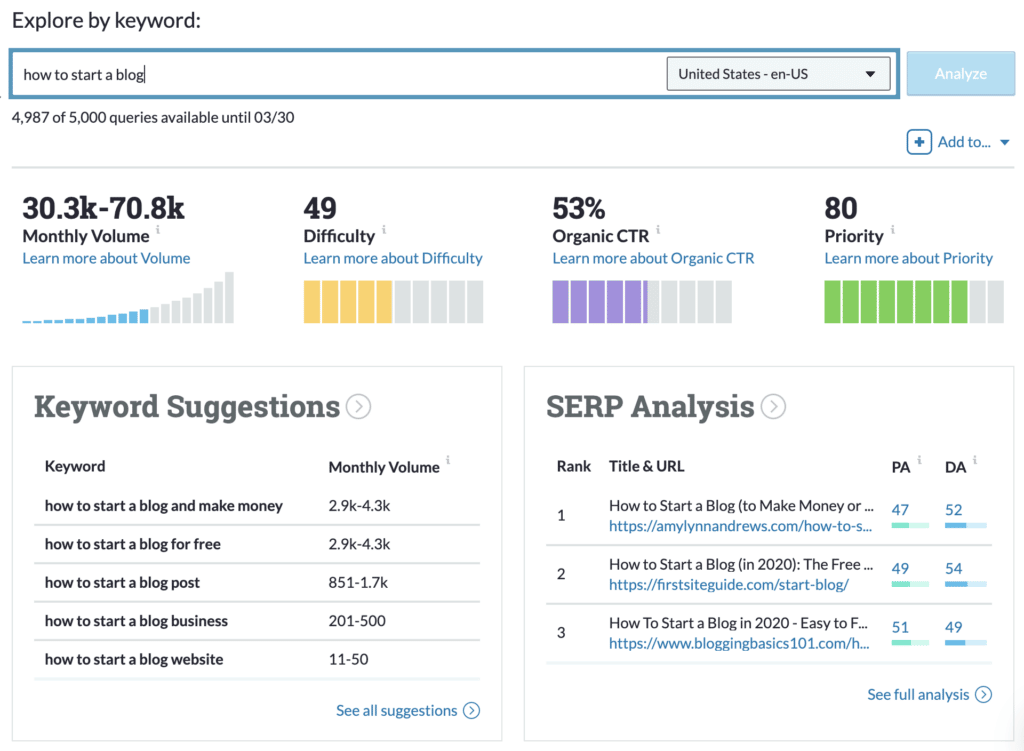
- I’ve always been a fan of Mindomo since 2011 for mind mapping out concepts and ideas.
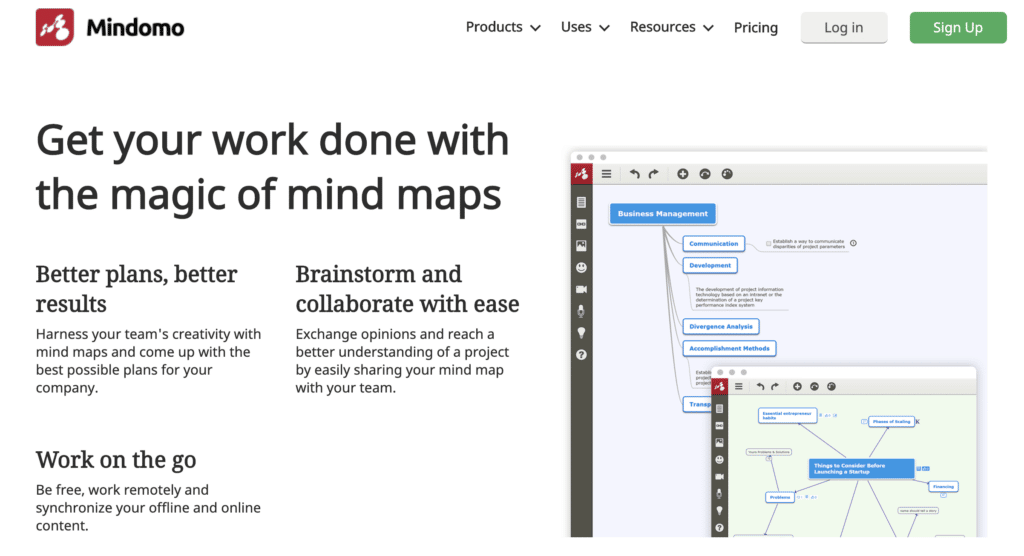
- Trello is my go to for planning, writing, and completing my blog posts. Here’s a great template you can mimic:
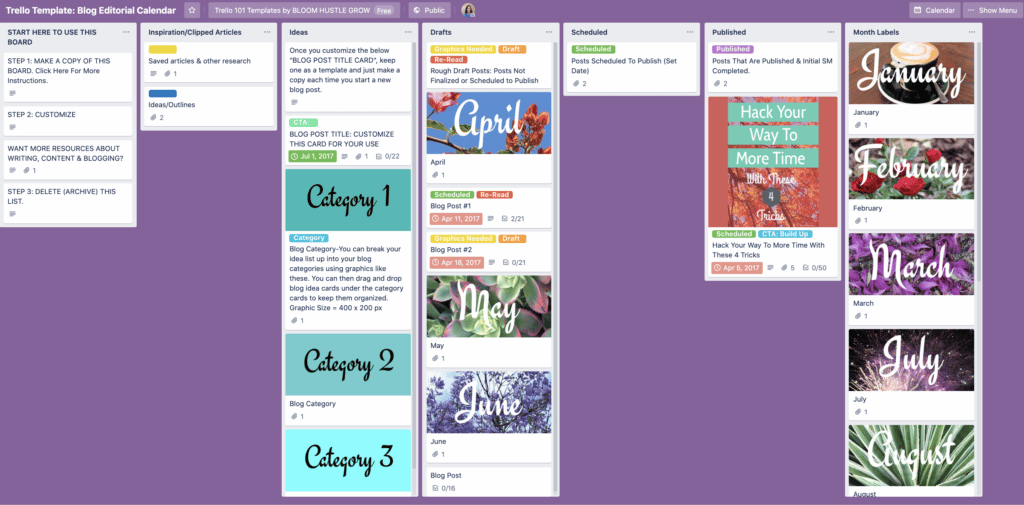
- And finally, Google Docs is my go to when it comes to drafting out my content. It’s easy to collaborate with editors before I publish because I can share my content easily to get feedback.
Following these steps every week and every month will push you to be more accountable with writing and publishing content as much as you’re able. Know that the key to being successful with your blog comes down to being authentic, writing content your audience wants to consume, building trust with those who subscribe to your blog, and being consistent with pushing out fresh content.
Promoting Your Blog Posts
There are two ways to go about promoting your blog posts: organic and paid. From an organic stance, it’s easy. You share out fresh and existing content via your social media profiles, Medium, Pulse, Reddit, and any other forums that welcome it.
From a paid perspective, you’ll need to be more methodical because you’ll be spending money and you want to see some sort of a return from that. Before you dive into the paid route, make sure that you have the following taken care of:
- Spend. Know exactly how much you’re going to spend.
- Forecasted model. Have an idea of what you want to see in return, e.g. number of new subscribers, number of new leads, etc.
- Nail down straightforward KPIs to track such as: CPA, CPL, CPM, top performing ad, top performing content topic, visit to lead % and lead to customer %.
It takes money to make money, but you won’t get far if you don’t have a specific way of tracking what’s working and what’s not. My recommendation is that you promote the longer pieces of content that dive deeper into topics your audience cares about and make sure you do the following:
- Insert CTAs throughout the content. You want people to have an easy way to get in touch with you and even subscribe to your blog.
- Start off with Facebook and Instagram Ads. They’re a cost-effective way to go and you will have the ability to hyper target your audience.
- Begin with a small budget for advertising and then grow and allocate where you see the best results.
Generating Revenue with Your Blog
It’ll take time to build out your blog. As such, it’ll take even more time before you can generate revenue with your blog. You typically want to first focus on generating tons of traffic to your blog, then look at how to increase leads/subscribers, and from there, you can find ways to monetize.
The mistake I see a lot of bloggers make is that they want to start making money right away. In fact, this was a mistake I made too. I thought it’d be easier to just throw up a few blog posts and start pitching people on why they should buy from me or work with me.
Frankly, that’s just not the reality of the situation. Before people will want to buy from you or work with you, they want to see what you can do, and the best way to show this is through your blog posts.
Next up, there are a ton of ways you can generate revenue with your blog, but I recommend that as you begin, you try to be as focused as possible. So the four avenues I suggest are:
- Google AdSense. This will be slow, but you’ll get pretty excited as you start generating a little bit of money as your blog traffic grows.
- Affiliate. Choose products that align with your expertise and your blog content. Don’t promote products just for the sake of earning money, but actually test out the products you recommend to your subscribers.
- Consulting. As you start to make a name for yourself and see your blog traffic grow, the next thing you can consider is consulting, i.e. teaching others to do what you have done.
- E-Courses. Once you see successful consulting clients, consider building out an e-course that teaches exactly what you would teach through your consulting services. This will allow you to continue earning without having to always trade your time for dollars.
Wrapping It Up
Keep in mind that creating a blog is quicker than being able to generate income with a blog. The latter will take time, but as you put in the time, you’ll see results. It’s just like diet and exercise – if you want to see the results, you have to put in time and effort.
Also, make sure that whatever you decide to blog about is something that you are truly passionate about. This will make the entire process more enjoyable for you because even if you’re not writing about that specific topic, you’re learning about it and reading about it.
Lastly, look at how your blog can truly help and add value to your target audience over trying to make a quick transactional sale. This will change your perspective on what growth should look like. This is a long game, and you have to build out your endurance to stick it out by being consistent with how much value you add. Always keep in mind that the opportunities are endless, your ability to make money is limitless, and it all boils down to how much value you’re willing and able to give in order to make that happen.





